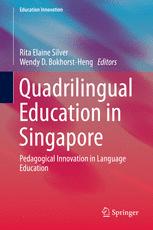

Most ebook files are in PDF format, so you can easily read them using various software such as Foxit Reader or directly on the Google Chrome browser.
Some ebook files are released by publishers in other formats such as .awz, .mobi, .epub, .fb2, etc. You may need to install specific software to read these formats on mobile/PC, such as Calibre.
Please read the tutorial at this link: https://ebookbell.com/faq
We offer FREE conversion to the popular formats you request; however, this may take some time. Therefore, right after payment, please email us, and we will try to provide the service as quickly as possible.
For some exceptional file formats or broken links (if any), please refrain from opening any disputes. Instead, email us first, and we will try to assist within a maximum of 6 hours.
EbookBell Team

4.4
22 reviewsThis book explores Singapore’s language education system. Unlike previous volumes, which discuss the bilingual requirement for learning, it focuses on Singapore’s quadrilingual system, bringing together articles on each of the four languages – English, Mandarin, Malay and Tamil – as well as articles that examine more than one language. It highlights past successes, current concerns, and future directions for language education. The book focuses on classroom pedagogy in all four official languages, showcasing how languages are taught and learned in Singapore as a basis for better understanding the system “from the inside out.” The authors present empirical, classroom-based studies on language pedagogy in all four languages, as well as updated information on the current socio-political context and how it has influenced attempts at pedagogical innovation. Consideration is given to the dialectical relationship between policy and practice. The chapters also include discussions of pre-school-age learning, influences of language policy, home literacy practices, and commentaries by international language-in-education scholars. This approach also provides a basis for international comparison – especially for those who are interested in fostering English proficiency while maintaining one or more national languages. The volume is particularly important in light of the continuing international efforts to integrate English into national educational systems where it is not the dominant language.